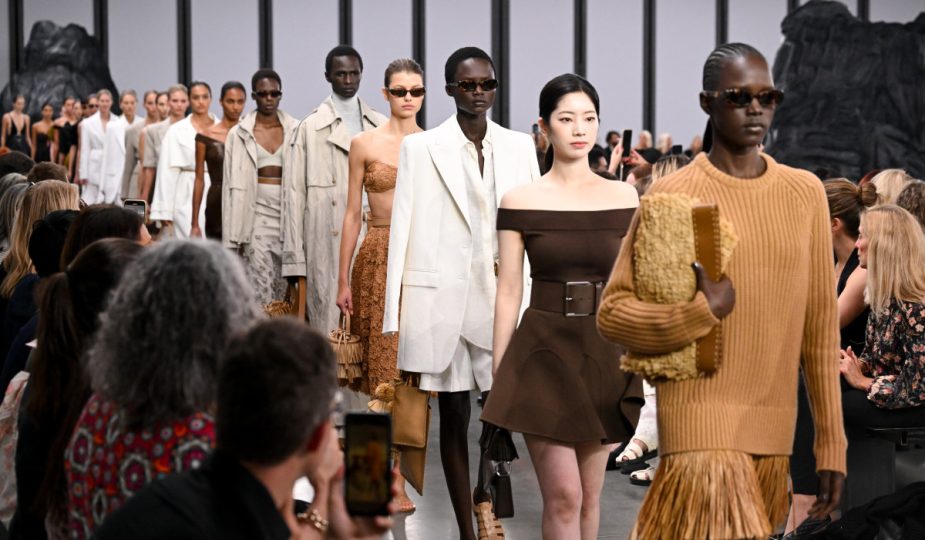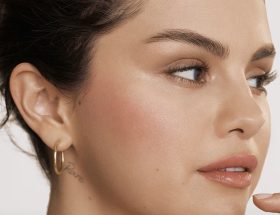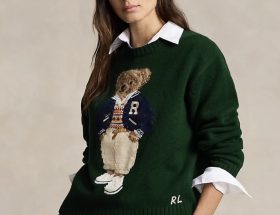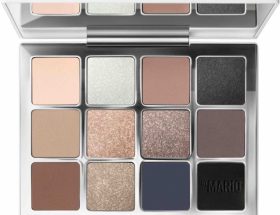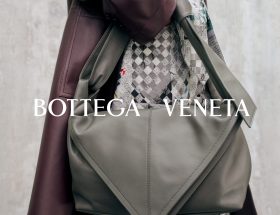# Fashion Industry Updates: Capri Holdings, LVMH, and Richemont
The fashion sector is in a state of continuous transformation, with key players such as Capri Holdings, LVMH, and Richemont making headlines with their latest earnings reports, acquisitions, and strategic maneuvers. Here’s a summary of the most recent occurrences in the luxury fashion arena.
## Capri Holdings Reports a 16.4% Sales Drop
Capri Holdings, the parent organization of **Versace**, **Jimmy Choo**, and **Michael Kors**, has recently published its second-quarter fiscal 2025 results, showcasing a significant **16.4% decrease in revenue**. The company reported a net income of **$24 million** for Q2, or **$0.20 per diluted share**, in contrast to **$90 million** (or $0.77 per diluted share) during the same period last year.
John D. Idol, the chairman and CEO of Capri Holdings, voiced his disappointment in the results, attributing the downturn to **weakening global demand for luxury fashion items**. Despite the demanding retail climate, Idol highlighted the company’s dedication to implementing strategic initiatives designed to achieve **sustainable long-term growth** across its luxury brands.
Capri Holdings’ challenges mirror the wider difficulties faced in the global luxury market, where consumer demand has been unpredictable due to economic instability and changing spending habits.
## LVMH Acquires Minority Stake in Swedish Menswear Label Our Legacy
In a strategic move that underscores its ongoing expansion into the menswear segment, **LVMH Luxury Ventures** has taken a minority stake in the Swedish menswear label **Our Legacy**. The financial specifics of the agreement were not made public, but the acquisition coincides with Our Legacy’s remarkable growth, as sales reached **€40 million ($43.6 million)** in the fiscal year concluding June 2024, a rise from €30 million the prior year and €8 million in 2021.
Jockum Hallin, co-founder of Our Legacy, emphasized that the investment was not merely for cash flow but rather a strategic maneuver aimed at positioning the brand for future expansion. “It’s more about looking ahead as we create the next phase,” Hallin commented to **Business of Fashion**.
This acquisition forms part of LVMH’s overarching strategy to broaden its portfolio and capitalize on the increasing demand for premium menswear. Our Legacy’s minimalist and modern aesthetic has attracted a devoted customer base, and the collaboration with LVMH is anticipated to facilitate further growth for the brand.
## Human-Derived Skin-Care Ingredients Gain Traction
The luxury **skin-care** market is experiencing a rising trend toward **human-derived ingredients**, particularly those obtained from **stem cells**. A notable instance is **Angela Caglia Skincare**, which introduced its **Cell Forté Serum** in October 2023. This serum, powered by **human-derived adipose mesenchymal stem cell-conditioned media**, has led to an impressive **437% annual sales increase** and broadened its presence in retail, including **Nordstrom**.
The serum’s primary ingredient is derived from human fat donated by youthful and healthy plastic surgery patients, which is subsequently processed in a laboratory. The stem cells are cultivated in an environment mimicking the human body, where they produce growth factors, cytokines, and proteins that are incorporated into the serum.
Although human-derived ingredients remain relatively limited within the beauty sector, brands like Angela Caglia Skincare and **FactorFive** are witnessing heightened interest in their innovative offerings. As advancements in stem cell research progress, they are expected to stimulate additional growth within the luxury skin-care market.
## Richemont Reports 1% Sales Decline
**Richemont**, the luxury conglomerate behind brands such as **Cartier** and **Van Cleef & Arpels**, has reported a **1% decrease in sales** to **€10.1 billion** for the first half of the fiscal year 2024. While the company experienced growth across most regions, sales in the **Asia Pacific** area fell, counterbalancing the double-digit increases seen in the **Americas**.
In October, Richemont gained attention with its sale of **Yoox Net-a-Porter** to **Mytheresa**, a deal anticipated to conclude in the first half of 2025. Despite this divestiture, Richemont’s profits fell to **€457 million**, down from **€1.5 billion** in 2023.
The profit decline reflects the broader hurdles affecting the luxury sector, particularly in Asia, where economic uncertainties and evolving consumer behaviors have impacted sales. Nevertheless, Richemont remains robust, backed by its strong portfolio of prestigious brands and a commitment to long-term growth.
## Conclusion
The luxury fashion and beauty sectors are traversing a complicated landscape characterized by shifting consumer demand, strategic acquisitions, and innovations in product development. While entities like Capri Holdings face hurdles, others such as LVMH and Richemont are continuing to adapt and grow their portfolios. Meanwhile, the emergence of human-derived ingredients in skin care is gaining traction.
